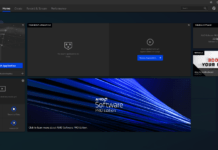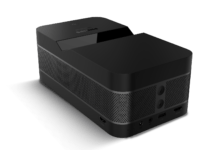What is endpoint security for business?
A DEFINITION OF ENDPOINT SECURITY
Endpoint Security is the process of protecting various endpoints on a network, often called end user devices such as mobile devices, laptops and desktop PCs. However, hardware like servers in a data center is also considered an endpoint. Precise definitions vary among security leaders, but especially endpoint security for business addresses the risks presented by devices connected to a corporate network.
ENDPOINT’s confidentiality is very significant
Any means like a smartphone, tablet or laptop provides an access point for a threat.Endpoint Security aims to adequately protect all terminals connected to the network to block access attempts and other dangerous activities at these access points.As more and more companies adopt practices such as BYOD (Bring Your Device) and remote / mobile employees, the security perimeter of the corporate network has essentially melted away.
The need for effective terminal security measures has increased considerably, especially given the increase in mobile vulnerabilities. With employees relying on mobile devices and home computers and laptops to connect to corporate networks and conduct business, a centralized security solution is no longer adequate for the ever-changing and indefinable security perimeter. Endpoint security complements centralized security measures with additional protection at the entry point for many attacks, as well as the exit location for sensitive data.
By requiring endpoint devices to meet security standards before gaining access to the network, companies have more control over an increasing number of access points and block threats and log in more effectively before gaining access. I can do it. Access to access points. I will do it. Endpoint security tools not only directly control access, but also provide functionality such as monitoring and preventing dangerous or harmful activities.
Differentiate endpoint security from antivirus software
The difference between endpoint security and known antivirus software is that within the endpoint security framework, an endpoint has some or all of the responsibility for protecting them. This is in contrast to network security, where security measures include the entire network rather than individual devices or servers.
Endpoint security products can include features such as:
Data loss preventionInternal threat protection disk, endpoint and email encryption
White list or application check
Network access control
Data classification
Endpoint detection and response
Privileged user control
However, endpoint security is not conducted solely by devices. Customized terminal security solutions offer a hybrid approach, with security software installed on a central server or management console together with software installed on separate devices.
However, some definitions of simpler forms of security fall within the scope of protecting the endpoint from certain definitions. For example, according to TechTarget, personal antivirus and firewall software, as well as forms of endpoint security, could be described. That said, modern terminal security definitions usually describe more sophisticated approaches, including the detection of impulses and signal and inhibiting behaviors. acts and aggressive behavior by end users or hackers.
WHAT WELL IT MEANS FOR CONSUMPTION AND ADVENTURES
Endpoint security is available for both users and corporate networks, with some crucial differences in configuration, according to TechRepublic. For users, centralized management and administration, application signatures and updates are not available from the developer control servers, which are provided on the Internet. Security apps are configured on each computer or terminal, and warning and personal registry entries are available on all parameters.
In the corporate terminal security model, administration is always centralized. A single logon interface accelerates the configuration of endpoint security software on individual terminal devices and logs and log alerts are sent to the central administration server for evaluation and analysis. Signature and app updates are downloaded once and the central server sends updates to the endpoints configured within the network. This will allow you to establish and implement a network-level usage policy.
ENDPOINT RESULTS AND CONTROL OF CRITICAL ENTITLEMENT MANAGEMENT APPLICATIONS
An effective endpoint security solution; The two main components of endpoint encryption and application control are important steps in endpoint security that prevent problems such as data loss. Deliberately or accidentally copying or transferring data to removable devices. Endpoint encryption completely encrypts business data on endpoints, including laptops, mobile devices and other endpoints, as well as in individual folders, files and removable storage devices such as CDs and USB drivers.
Application control prevents unauthorized applications from running on endpoints, a key part of comprehensive terminal security measures. Application control solves the challenge of employees downloading unauthorized or dangerous applications to mobile devices, which can create network vulnerability and lead to unauthorized access.




